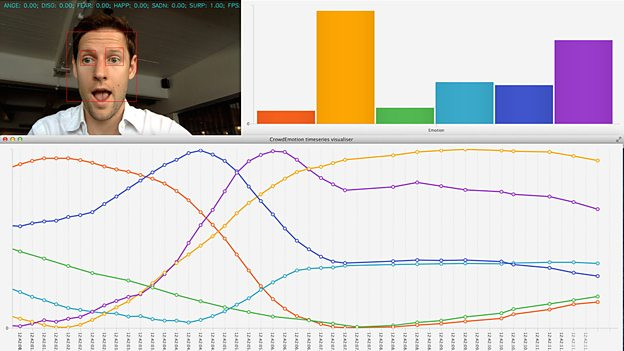BBC to use face-scanning tech to gauge viewer responses to programming

The BBC will utilise face-scanning technology to gauge viewers's emotional responses to programmes. The Independent reports that the organisation is pressing forward with plans to utilise the tech by British startup CrowdEmotion following successful trials.
CrowdEmotion's technology uses cameras and sensors to track the responses of people's faces in real time and then categorises them into six emotions, including happiness, fear, puzzlement, rejection, sadness and surprise. The BBC is said to be using the technology in order to better understand viewer preferences and how they react to particular content, thereby enabling it to target programming more successfully.
During a trial of more than 5,100 digital customers, the BBC used CrowdEmotion's facial coding engine to record viewers and measure their reactions to marketing campaigns. The results found that clearly labelled content garnered more trust from viewers and led to a 77% increase in "explicit positivity" toward commercial brands as well as a 14% increase in "subconscious positivity".
The trial follows a pilot study by BBC Worldwide in 2014, during which CrowdEmotion's technology was used to record viewers's emotional responses to BBC programmes including Sherlock and Top Gear. The BBC said the insights garnered by its latest study could also be offered to advertising clients to help them deliver video campaigns more successfully.
Richard Pattinson, SVP Content, BBC Advertising and Head of BBC StoryWorks, said: "In a time when advertisers are increasing their spending on content-led marketing, it is important that they also feel confident in its effectiveness, and understand the significant positive impact this kind of content has on their brand.
"We believe that this study will enhance advertisers's understanding and confidence in these campaigns, and in the value of high-quality content-marketing delivered in premium environments."
© Copyright IBTimes 2025. All rights reserved.






















